Question 86 : Assalaamu ‘alaikum warahmatullah wabarakatuh. Dear Syaikhs. When we refrain from cutting our hairs and nails from the first day of Dzulhijjah until our qurban is slaughtered, how to determine when we can cut our nails or hairs if we do our qurban through a charity program (e.g. qurban for Palestine)? Jazaakallahu khayran
Answer : Walaikumussalam Brother,
Firstly, it is better for Muslims to do the sacrifice where they are – not send money overseas for sacrifice there for sake of poor there – and locally take the meat of your own sacrifice and then eat some and give to others. The reason for this (doing sacrifice by us and not sending money overseas for sacrficie there such that ir is like monetaty charity from us, the reason not to send overseas but do locally) is that Udhiyah sacrifice is prescribed in a specific way ie to sacrifice. And it is not just any monetary charity. So the principle is that charity which Allah left general and did not specify a particular way, then it may be given as charity by money. But that which Allah specified a non-monetary specific way, then there is desired benefit in that way and hence we should do in that way and not just give money from our end to be then done elsewhere in that or another way as it deprives the Iman and Taqwa benefit intended from it. The sacrifice done by us or where we are and then the meat taken in to our posession helps us to feel the spirit of sacrifice of Prophet Ibrahim (a.s) and thus us to be more sacrificing for Allah of what we love more than mere money. Sending money elsewhere does not benefit in this way. Hence it is the proper thing to do a sacrifice where we are and take part in it to some extent as possible. Sending money away to sacrifice elsewhere (while it can be done here) is perhaps not haram, but it defeats the purpose of eid ul adha sacrifice. Eid ul adha sacrifice is more than just charity and people sending it overseas and not doing it where they are is defeating the main purpose of it. Unfortunately huge powerful charity organisations use their power and wealth to push this idea of sending overseas, which does bring their organisation money, but it deprives the people of the desired benefit from sacrifice and renders it a mere monetary charity. So I suggest people sacrifice where they are and help the poor by sending them seperate donation or part of their meat.
Second:
Generally, a person sacrificing can cut hair and nails once the sacrifice is done as stated explicitly by the Prophet (s.a.w) in the hadith in Sahih Muslim amd Abu Dawud:
ولفظ أبي داود (2791) ومسلم (1977) : ( من كان له ذبح يذبحه فإذا أهل هلال ذي الحجة فلا يأخذنَّ من شعره ومن أظفاره شيئاً حتى يضحي )
“Whoever has a sacrifice that he is doing, and the month has begun, then let him not take anything off his hair or nails till he does the sacrifice”. Please see link below for more on that.
Third:
If the sacrifice is being done elsewhere, then some scholars said he as above he should ascertain when the sacrifice is completed overseas and only then cut his own hair or nails. Other scholars such as Sh Ibn Jibreen apparently said that once it is time for Sacrifice (ie Eid prayer time completed) in that country overseas, then you can trim your hair and nails just as in Hajj. Sh Ibn Jibreen opinion seems the strongest mainly because:
- A resident not trimming is understood to be imitating in a limited way the person in ihram doing Hajj, and since they do not have to wait for sacrifice to remove ihram then same with the resident does not need to wait for sacrifice.
- As for the wording of the hadith stated above, “let him not take off anything from his hair and nails until he does the sacrifice,” this is ‘kharaja makhrajal-ghalib’ ie this is said by what is the most common the person doing it himself. But if not, then the above Hajj ihram person’s situation is the basis default to use as the reference for the resident too.
Hence if sacrifice is done overseas, then once its time for sacrifice there, ie time for eid prayer to be completed, then we here can trim our hair and nails. Moreoever, it is similarly permissible to trim hair and nails once the Eid prayer is performed and sacrifice time begins locally without needing to wait for another place, as Sh Ibn Jibreen said, since that is how a Hajj person in ihram removes ihram ie once its time for the person himself without needing to wait.
So once our eid prayer is completed, we can trim our hair and nails if sacrifice done overseas. If we doing it ourselves, then do sacrifice and only then trim hair and nails.
Allah knows best.
This link has the hadith mentioned above and on a similar topic
This link mentions the opinion of Sheikh Ibn Jibreen rahimahullah referred to above
http://fatwa.islamweb.net/fatwa/index.php?page=showfatwa&Option=FatwaId&Id=236641&fref=gc
